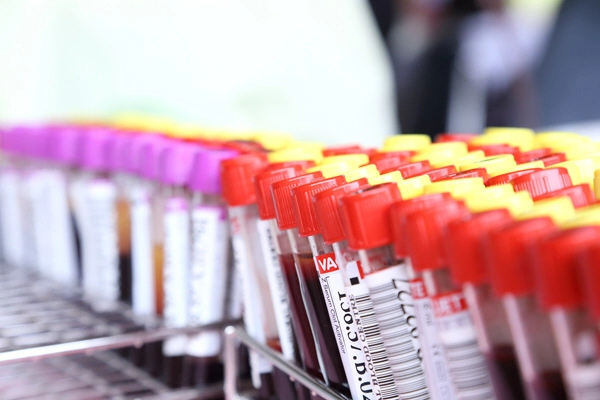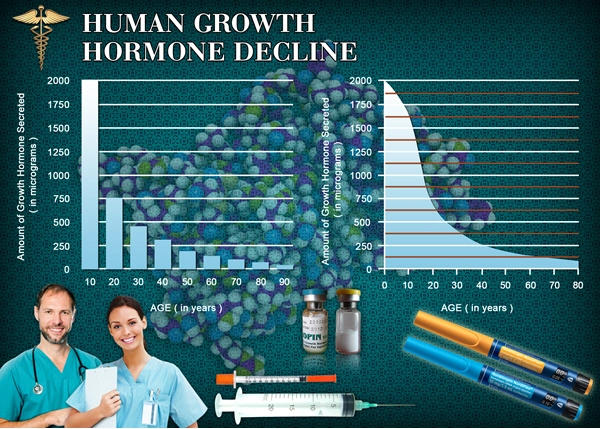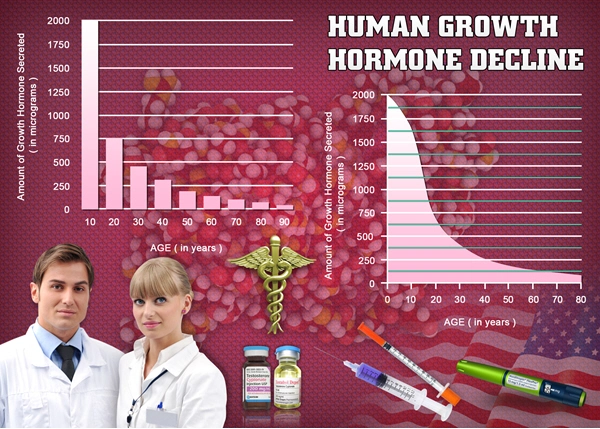Introduction
Erectile dysfunction (ED) is a prevalent concern among American males, affecting millions and significantly impacting their quality of life. While numerous physiological factors contributing to ED have been extensively studied, the role of psychological and relational factors remains less explored. This article delves into the findings of a survey-based study involving over 1200 American couples, which investigated the correlation between relationship satisfaction and the incidence of ED. Understanding this connection can offer valuable insights for both preventive and therapeutic strategies in managing ED.
Study Methodology
The study employed a comprehensive survey distributed to over 1200 American couples. Participants were asked to evaluate their relationship satisfaction using validated scales, while male partners were assessed for the presence and severity of ED. The data collected provided a robust basis for analyzing the interplay between relational dynamics and sexual health.
Key Findings on Relationship Satisfaction and ED
The survey revealed a significant association between relationship satisfaction and the incidence of ED. Men who reported higher levels of satisfaction with their relationships exhibited a lower prevalence of ED compared to those with lower satisfaction scores. Specifically, the data indicated that a harmonious and supportive relationship could serve as a protective factor against the development of ED.
Psychological Mechanisms Linking Relationship Satisfaction to ED
Several psychological mechanisms may explain the link between relationship satisfaction and ED. High relationship satisfaction is often associated with reduced stress and anxiety, which are known contributors to ED. Additionally, a satisfying relationship can enhance self-esteem and emotional well-being, both of which are crucial for maintaining sexual function. The study suggests that fostering a positive relational environment may mitigate the psychological stressors that can lead to ED.
Implications for Clinical Practice
The findings of this study have significant implications for clinical practice. Healthcare providers should consider assessing relationship satisfaction as part of the routine evaluation for ED. Couples therapy or relationship counseling could be recommended as a complementary approach to traditional ED treatments, such as medication or lifestyle modifications. By addressing relational issues, clinicians may enhance the effectiveness of ED management strategies.
Strategies for Enhancing Relationship Satisfaction
To improve relationship satisfaction and potentially reduce the risk of ED, couples can adopt several strategies. Effective communication, mutual respect, and shared activities can strengthen the bond between partners. Additionally, seeking professional help from a therapist or counselor can provide couples with tools to navigate relational challenges and enhance their overall satisfaction.
Limitations and Future Research Directions
While the study provides compelling evidence of the relationship between relationship satisfaction and ED, it is not without limitations. The survey relied on self-reported data, which may be subject to bias. Future research could benefit from longitudinal studies to better understand the causal relationships between these variables. Additionally, exploring the impact of relationship satisfaction on other aspects of sexual health could provide a more comprehensive understanding of its role in male sexual function.
Conclusion
The survey-based study of over 1200 American couples highlights the significant impact of relationship satisfaction on the incidence of erectile dysfunction. By fostering a supportive and satisfying relationship, couples may reduce the risk of ED and enhance overall sexual health. These findings underscore the importance of considering relational factors in the management of ED and encourage further research into the psychological aspects of sexual function. As we continue to explore the complex interplay between mind and body, integrating relational health into ED treatment plans could offer new avenues for improving the lives of American men.

- Lifestyle Changes to Combat Erectile Dysfunction in American Men [Last Updated On: December 29th, 2025] [Originally Added On: February 19th, 2025]
- Unlocking Passion: Strategies for Overcoming Erectile Dysfunction and Enhancing Intimacy [Last Updated On: February 25th, 2025] [Originally Added On: February 24th, 2025]
- Embarking on the Journey from Despair to Victory: Navigating Erectile Dysfunction Challenges Gradually [Last Updated On: February 25th, 2025] [Originally Added On: February 25th, 2025]
- Unveiling the Hidden Stories: Triumph Over Erectile Dysfunction [Last Updated On: February 26th, 2025] [Originally Added On: February 26th, 2025]
- Decoding Desire: Unravelling the Biochemical Basis of Erectile Dysfunction [Last Updated On: February 27th, 2025] [Originally Added On: February 27th, 2025]
- Ascend Beyond Adversities: A Modern Take on Masculinity and Erectile Dysfunction [Last Updated On: February 28th, 2025] [Originally Added On: February 28th, 2025]
- Demystifying Misconceptions: A Comprehensive Guide on Erectile Dysfunction [Last Updated On: February 28th, 2025] [Originally Added On: February 28th, 2025]
- Unraveling the Web: How Affective Processing Impacts Erectile Dysfunction [Last Updated On: March 1st, 2025] [Originally Added On: March 1st, 2025]
- Efficacy Spectrum: Topical Comparison between Erectile Dysfunction Drugs [Last Updated On: March 2nd, 2025] [Originally Added On: March 2nd, 2025]
- Revitalizing Intimacy: Exploring Innovative Treatments and Therapies for Restoring Love and Libido in Relationships [Last Updated On: March 3rd, 2025] [Originally Added On: March 2nd, 2025]
- Advancements in Enhancing Intimacy: A Comprehensive Guide to Modern Medical Interventions in Sexual Health [Last Updated On: March 3rd, 2025] [Originally Added On: March 2nd, 2025]
- The Interplay of Love and Libido: Modern Medicine's Impact on Enhancing Intimacy [Last Updated On: March 2nd, 2025] [Originally Added On: March 2nd, 2025]
- Advancements in Sexual Medicine: Restoring Love and Libido for a Brighter Future [Last Updated On: March 3rd, 2025] [Originally Added On: March 2nd, 2025]
- Reviving Love and Libido: Exploring Innovative Medical Solutions for Intimacy and Relationship Spark [Last Updated On: March 2nd, 2025] [Originally Added On: March 2nd, 2025]
- Exploring Modern Medical Interventions for Enhancing Sexual Health and Intimacy: Hormonal Treatments, Psychological Therapies, and Advanced Erectile Dysfunction Solutions [Last Updated On: March 3rd, 2025] [Originally Added On: March 3rd, 2025]
- Comprehensive Guide to Understanding and Treating Erectile Dysfunction [Last Updated On: March 4th, 2025] [Originally Added On: March 4th, 2025]
- Exploring the Emotional and Psychological Impacts of Erectile Dysfunction on Men [Last Updated On: March 5th, 2025] [Originally Added On: March 5th, 2025]
- Understanding Erectile Dysfunction: Causes, Treatments, and Role of Nitric Oxide [Last Updated On: March 6th, 2025] [Originally Added On: March 6th, 2025]
- The Evolution of Erectile Dysfunction Treatments: From Ancient Remedies to Modern Innovations [Last Updated On: March 7th, 2025] [Originally Added On: March 7th, 2025]
- Advancements in Erectile Dysfunction Treatment: Technology's Impact on American Men's Health [Last Updated On: March 8th, 2025] [Originally Added On: March 8th, 2025]
- The Critical Role of Blood Flow in Erectile Dysfunction: Vascular Health Implications [Last Updated On: March 9th, 2025] [Originally Added On: March 9th, 2025]
- Unraveling the Battle: Testosterone's Influence on Erectile Dysfunction in American Men [Last Updated On: March 12th, 2025] [Originally Added On: March 12th, 2025]
- Unveiling Triumph: Real-Life Journeys Through Erectile Dysfunction Recovery [Last Updated On: March 13th, 2025] [Originally Added On: March 13th, 2025]
- Navigating the Path to Recovery: Understanding and Managing Erectile Dysfunction [Last Updated On: March 15th, 2025] [Originally Added On: March 15th, 2025]
- Unveiling the Truth: Debunking Myths About Erectile Dysfunction in American Men [Last Updated On: March 15th, 2025] [Originally Added On: March 15th, 2025]
- Effective Non-Pharmacological Strategies for Managing Erectile Dysfunction in American Males [Last Updated On: March 18th, 2025] [Originally Added On: March 18th, 2025]
- Overcoming Erectile Dysfunction: A United Approach for Couples [Last Updated On: March 18th, 2025] [Originally Added On: March 18th, 2025]
- Erectile Dysfunction: Cultural Impact, Treatment, and Societal Shifts in American Males [Last Updated On: March 19th, 2025] [Originally Added On: March 19th, 2025]
- Innovative Therapies and Technologies Transforming Erectile Dysfunction Treatment [Last Updated On: March 19th, 2025] [Originally Added On: March 19th, 2025]
- Global ED Treatments: Insights and Options for American Men [Last Updated On: March 19th, 2025] [Originally Added On: March 19th, 2025]
- Exploring Alternative Therapies for Erectile Dysfunction in American Males [Last Updated On: March 19th, 2025] [Originally Added On: March 19th, 2025]
- Managing Erectile Dysfunction: A Holistic Approach for American Males [Last Updated On: March 19th, 2025] [Originally Added On: March 19th, 2025]
- Understanding and Managing Erectile Dysfunction: A Holistic Approach for American Men [Last Updated On: March 20th, 2025] [Originally Added On: March 20th, 2025]
- Telemedicine Revolutionizes ED Treatment: Benefits, Challenges, and Future Prospects [Last Updated On: March 20th, 2025] [Originally Added On: March 20th, 2025]
- Erectile Dysfunction: Treatment Costs, Insurance, and Affordable Options for American Men [Last Updated On: March 21st, 2025] [Originally Added On: March 21st, 2025]
- Erectile Dysfunction: Debunking Myths and Understanding Prevalence in American Males [Last Updated On: March 22nd, 2025] [Originally Added On: March 22nd, 2025]
- Diet and Exercise: Enhancing Libido and Combating Erectile Dysfunction in American Males [Last Updated On: March 22nd, 2025] [Originally Added On: March 22nd, 2025]
- Stress, Sleep Deprivation, and Erectile Dysfunction: A Holistic Approach for American Men [Last Updated On: March 22nd, 2025] [Originally Added On: March 22nd, 2025]
- Exploring Effective Treatments for Erectile Dysfunction: Options and Innovations [Last Updated On: March 22nd, 2025] [Originally Added On: March 22nd, 2025]
- Counseling's Crucial Role in Managing Erectile Dysfunction: A Holistic Approach [Last Updated On: March 22nd, 2025] [Originally Added On: March 22nd, 2025]
- Personalized Medicine Revolutionizes ED Treatment: Tailoring Therapies to Individual Needs [Last Updated On: March 23rd, 2025] [Originally Added On: March 23rd, 2025]
- Exercise as a Holistic Approach to Combatting Erectile Dysfunction in American Males [Last Updated On: March 23rd, 2025] [Originally Added On: March 23rd, 2025]
- Understanding Erection Physiology and Managing Erectile Dysfunction in American Men [Last Updated On: March 24th, 2025] [Originally Added On: March 24th, 2025]
- Wearable Technology Revolutionizes ED Management for American Males [Last Updated On: March 24th, 2025] [Originally Added On: March 24th, 2025]
- Emerging Treatments for Erectile Dysfunction: Novel Therapies and Personalized Medicine [Last Updated On: March 24th, 2025] [Originally Added On: March 24th, 2025]
- Managing Performance Anxiety and Erectile Dysfunction in American Men: Strategies and Solutions [Last Updated On: March 24th, 2025] [Originally Added On: March 24th, 2025]
- Erectile Dysfunction as an Early Indicator of Cardiovascular Health in American Men [Last Updated On: March 25th, 2025] [Originally Added On: March 25th, 2025]
- Work Stress and Its Impact on Erectile Dysfunction in American Men [Last Updated On: March 25th, 2025] [Originally Added On: March 25th, 2025]
- Exploring the Cycle of ED, Depression, and Anxiety in American Men [Last Updated On: March 25th, 2025] [Originally Added On: March 25th, 2025]
- Celebrity Influence on ED Awareness: Encouraging Open Dialogue and Proactive Health Management [Last Updated On: March 25th, 2025] [Originally Added On: March 25th, 2025]
- Erectile Dysfunction in American Men: Causes, Diagnosis, and Holistic Management Strategies [Last Updated On: March 25th, 2025] [Originally Added On: March 25th, 2025]
- Managing Erectile Dysfunction: Causes, Treatments, and Lifestyle Tips for American Men [Last Updated On: March 25th, 2025] [Originally Added On: March 25th, 2025]
- ED Clinics Transform Lives: Innovative Treatments and Holistic Care [Last Updated On: March 25th, 2025] [Originally Added On: March 25th, 2025]
- Managing Chronic Illness and ED: Strategies for American Men's Sexual Health [Last Updated On: March 25th, 2025] [Originally Added On: March 25th, 2025]
- CBT: A Promising Psychological Approach to Treating Erectile Dysfunction in American Males [Last Updated On: March 25th, 2025] [Originally Added On: March 25th, 2025]
- Revolutionizing ED Treatment: Breakthroughs in Science and Technology [Last Updated On: March 26th, 2025] [Originally Added On: March 26th, 2025]
- Nutrition's Role in Managing Erectile Dysfunction: Key Vitamins and Nutrients [Last Updated On: March 26th, 2025] [Originally Added On: March 26th, 2025]
- Vascular Health's Crucial Role in Preventing and Managing Erectile Dysfunction [Last Updated On: March 26th, 2025] [Originally Added On: March 26th, 2025]
- Enhancing Sexual Vitality: Diet, Lifestyle, and Supplements for American Men's Health [Last Updated On: March 26th, 2025] [Originally Added On: March 26th, 2025]
- Erectile Dysfunction: Understanding Prevalence, Psychological Impact, and Self-Esteem Recovery Strategies [Last Updated On: March 26th, 2025] [Originally Added On: March 26th, 2025]
- Navigating Erectile Dysfunction: Strategies for Couples to Maintain Intimacy [Last Updated On: March 26th, 2025] [Originally Added On: March 26th, 2025]
- Nerve Damage: A Critical Cause of Erectile Dysfunction in American Men [Last Updated On: March 26th, 2025] [Originally Added On: March 26th, 2025]
- Innovative Therapies and Technology Transforming Erectile Dysfunction Treatment [Last Updated On: March 27th, 2025] [Originally Added On: March 27th, 2025]
- Herbal Remedies for Erectile Dysfunction: Ginseng, Maca, and More Explored [Last Updated On: March 27th, 2025] [Originally Added On: March 27th, 2025]
- Erectile Dysfunction: Causes, Treatments, and Holistic Management Strategies [Last Updated On: March 27th, 2025] [Originally Added On: March 27th, 2025]
- Restorative Sleep's Impact on Erectile Function in American Men [Last Updated On: March 27th, 2025] [Originally Added On: March 27th, 2025]
- Erectile Dysfunction: Impact, Healing, and Support for American Men and Relationships [Last Updated On: March 28th, 2025] [Originally Added On: March 28th, 2025]
- Physical Therapy: A Holistic Approach to Treating Erectile Dysfunction in American Males [Last Updated On: March 28th, 2025] [Originally Added On: March 28th, 2025]
- Holistic Approaches to Overcome Erectile Dysfunction in American Men [Last Updated On: March 28th, 2025] [Originally Added On: March 28th, 2025]
- Managing Performance Anxiety and Erectile Dysfunction: A Holistic Approach [Last Updated On: March 28th, 2025] [Originally Added On: March 28th, 2025]
- Understanding Erectile Dysfunction: Anatomy, Causes, and Management Strategies [Last Updated On: March 28th, 2025] [Originally Added On: March 28th, 2025]
- Natural and Lifestyle Approaches to Managing Erectile Dysfunction in American Males [Last Updated On: March 29th, 2025] [Originally Added On: March 29th, 2025]
- PDE5 Inhibitors: Revolutionizing Erectile Dysfunction Treatment in American Males [Last Updated On: March 29th, 2025] [Originally Added On: March 29th, 2025]
- Navigating ED Consultations: A Comprehensive Guide for American Men [Last Updated On: March 29th, 2025] [Originally Added On: March 29th, 2025]
- Prostate Health and Erectile Dysfunction: Understanding the Vital Connection for Men [Last Updated On: March 30th, 2025] [Originally Added On: March 30th, 2025]
- Erectile Dysfunction: Holistic Management for American Men's Sexual Health [Last Updated On: March 30th, 2025] [Originally Added On: March 30th, 2025]
- Erectile Dysfunction: Impact, Communication, and Recovery Strategies for Couples [Last Updated On: March 31st, 2025] [Originally Added On: March 31st, 2025]
- Erectile Dysfunction: Harnessing Positivity and Mental Strategies for American Men [Last Updated On: April 1st, 2025] [Originally Added On: April 1st, 2025]
- Erectile Dysfunction in American Men: Causes, Stigma, and Effective Management Strategies [Last Updated On: April 3rd, 2025] [Originally Added On: April 3rd, 2025]
- Transforming ED Challenges into Opportunities for Deeper Relationship Intimacy [Last Updated On: April 4th, 2025] [Originally Added On: April 4th, 2025]



List of USA state clinics - click a flag below for blood testing clinics.
Word Count: 570


















































